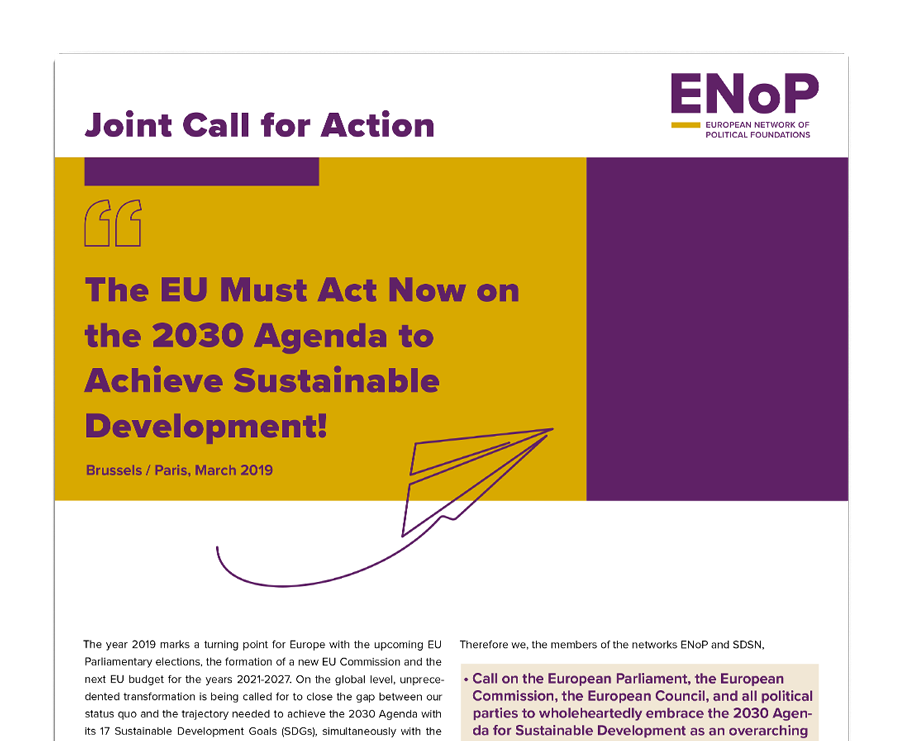Want ENoP in your Inbox?
Receive the latest news from the ENoP Network
"*" indicates required fields

The year 2019 marks a turning point for Europe with the upcoming EU Parliamentary elections, the formation of a new EU Commission and the next EU budget for the years 2021-2027. On the global level, unprecedented transformation is being called for to close the gap between our status quo and the trajectory needed to achieve the 2030 Agenda with its 17 Sustainable Development Goals (SDGs), simultaneously with the Paris Climate Agreement.
In 2018, the European Network of Political Foundations (ENoP) and the Sustainable Development Solutions Network (SDSN) joined forces to work on this objective. In the EU, both networks bring together more than 50 political foundations associated with a broad range of party families, as well as more than 200 knowledge institutions.
As members of the European political (ENoP) and scientific (SDSN) communities, we recognise the urgency to solve the current global challenges. We have the shared responsibility to build on the momentum of the 2030 Agenda, to acknowledge and unfold its cohesive power for a sustainable future. We need to prove our ability as Europeans to act decisively both within the EU and globally.
This call for action builds on consultations within both networks and the input of the participants and speakers of our joint conference in October 2018 entitled “The SDGs and the Future of Europe”. The conference brought together European experts from academia, politics, and the private sector who agreed on the urgent and crucial need for European leadership on the SDGs.
Therefore we, the members of the networks ENoP and SDSN,
In particular, we call on
Both ENoP and SDSN are committed to actively shape and inform the run-up to the European elections. You can learn more at www.enop.eu and www.unsdsn.org.
_____________
The UN Sustainable Development Solutions Network (SDSN) has been operating since 2012 under the auspices of the UN Secretary-General. SDSN mobilizes global scientific and technological expertise to promote practical solutions for sustainable development, including the implementation of the Sustainable Development Goals (SDGs) and the Paris Climate Agreement. Much of SDSN’s work is led by its 31 National or Regional SDSNs, which mobilize more than 900 knowledge institutions around the SDGs. Several Thematic Networks mobilize experts from around the world on the technical challenges of implementing the SDGs and the Paris Climate Agreement.